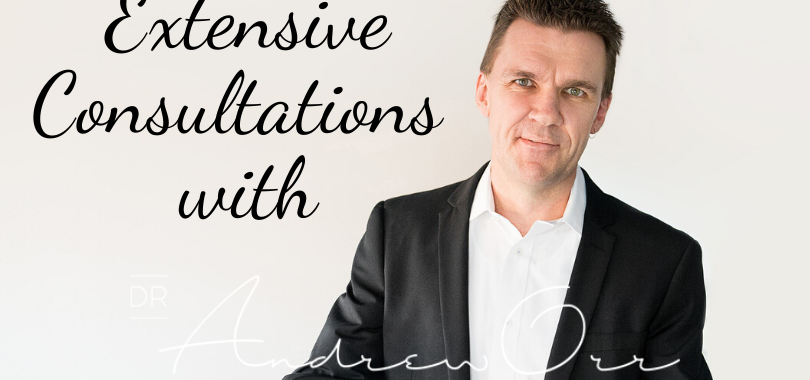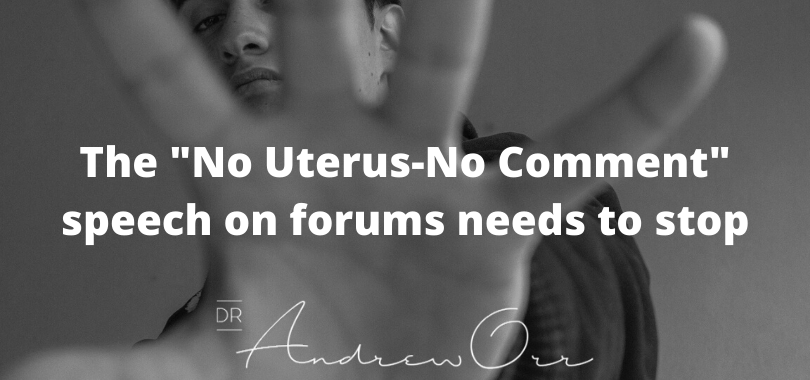Wouldn’t you love to sit down for 2-3 hours with a fertility expert and cover everything you need to know for your fertility and journey to become a parent?
Wouldn’t you love to have a fertility expert that can not only talk to you about all the medical investigations, medical protocols, genetics and genetic testing, hormones and medications etc, but can also talk you about preconception care, nutrition, diet, lifestyle changes, nutritional supplements, complementary medicines, acupuncture, counselling and other modalities?
Wouldn’t you just love it if someone could listen to your individual needs, listen to your full history, be empathetic to your journey so far, be there to guide you every step of way, and then make sure you are looked after on every level possible?
Well, you can have this, but before I talk about how, let’s talk about the facts about fertility and the fertility profession first.
Let’s talk about the facts
I never hold back from telling people the cold hard facts on any health topic I talk about. It may, or may not upset some people, but the truth is that it needs to be said all the same. People deserve to know the reality about every health condition and their reproductive system. For this post I am going to talk about the cold hard facts of the fertility profession and facts around fertility.
The fact is that many people are lucky to get half hour with a fertility specialist/expert when they decide that need help in having a baby. Some may only get a 15-minute appointment with a fertility specialist/expert and are lucky to get a few questions answered. Then at each of your next 15 minutes appointments, people are trying to cram in as many questions as they can before they are escorted to the door, because the next patient has arrived.
Many medical fertility specialists/experts have no idea about diet, lifestyle advice, preconception care etc, and the one subject that they did learn years ago at college is now a lost and distant memory. Basically it becomes a case of not my area, not my concern.
People then go home and arm themselves with a degree in ‘doctor google’ and then desperately search for answers themselves. They then end up on all manner of sites and support groups with a plethora of misinformation and angst. Have read of my post about Fertility and Dr Google
This then leads to people searching for a local naturopath, nutritionist, Chinese medicine practitioner etc, trying to cover off on all the complementary medicines, nutrition, dietary advice and nutritional and herbal supplements.
Then this can lead to the case of too many cooks spoiling the broth, too many with differing ideas, or no idea at all, and the turf war on fertility begins.
The medical specialist damns the complementary medicines. The complementary medicine practitioner damns the medical specialist and the couple, or individual, is then caught in the middle. Dazed and confused, the couple/individual has to make a choice of whom they are going to believe and whom they are going to continue to see. But does it have to be this way?
Health professionals should be working together, for the greater good of the patient, not working against each other. Nobody has all the answer and a symbiotic relationship can greatly increase a couples success of having a child.
No wonder many couples/individuals don’t know where to turn to, who to believe and then end up searching for answers themselves. Worst still, while all this confusion and mud slinging continues, the couple/individual still have not get the answers they need, let alone the baby they are desperately wanting.
The fertility profession is largely unregulated
1.The medical side of things
What many are unaware of, especially here in Australia, is that the fertility profession is largely unregulated. Anyone can say they do fertility work and yet not have the qualifications to back it up. Only one state here is regulated, where you have to have what we call a CREI (Certificate of Reproductive Endocrinology and Infertility).
But let’s face it, it is a certificate, not a postgraduate degree and they are very easy to get. But now, many have to have a Masters in Reproductive Medicine as well. But this is only in one state mind you. In all other states, there is nothing stopping anyone doing fertility.
So what this means is that anyone can go and work in a fertility clinic, without the proper extra training to do so. We see obstetricians often do the change to fertility, without having to do extra training, and are basically learning on the job as they go along. The patients then become the guinea pigs and test cases while they are learning on the job. It really should not happen. Sure, they have some reproductive training, back when they studied, but fertility is a very different area to obstetrics and pregnant women.
We also are now even see some GP’s do the sea change to some of these bulk bill IVF clinics and then are consulting with people are their fertility. Many of these couples are then led to believe they are seeing a fertility specialist, when in fact they are just seeing a GP, without any formal training in fertility and reproductive. For many of these, the last time they did any study on fertility, was back in university, and it was probably one subject, if that.
2. The complementary medicine side
But, at the same time, this is not just an issue that is related to the medical side of things. There is just as many complementary medicine practitioners saying that they do fertility, when in fact they have had no formal training, and many often have no idea. They are doing the same thing of learning at they go along, and the patients are the guinea pigs.
Many of these complementary medicine practitioners are lucky to have studied one subject in fertility and reproduction. Many of their lecturers have no formal qualification in fertility and reproduction either. They are then leaving college, or university, and then setting themselves up as experts in fertility.
Many are literally setting up overnight, with no clinical experience, or post graduate certification in fertility, and then trying to say that they do fertility. Daily, I see some of these practitioners not even knowing the basics, yet are out there trying to treat people for fertility issues. I often comment on how some of these practitioners are out there trying to have a crack at it with no idea what so ever. This should not be happening.
There needs to be better regulation
It is a big issue for couples trying to wade their way through the murky waters of the fertility profession. It really should not be allowed to happen. But again, it is all due to lack of regulation and laws preventing it from happening.
As I said, it is on both sides and not just related to one profession. There desperately needs to be more tougher and tighter regulation with the fertility profession, so that couple know that when they are seeing a fertility expert, they actually do have the post graduation training and degree, as well as the clinical experience too. The only good thing here in Australia, is that nobody can advertise that they are a specialist, unless they have a specialisation. If they are caught advertising they are something that they are not, there are harsh penalties around this.
But seriously, this would not happen in any other profession. You would not see a backyard mechanic, or a backyard hairdresser, or someone without the appropriate levels of training?
Yet, why are people not checking who they are seeing for fertility, and just presuming on face value. Your fertility and reproduction is far more important than your car, or your hair. I hope people get what I am trying to say here.
So how do you know whom to see?
This is the million-dollar question and why I always say to patients to be careful. It really is a case of buyer beware.
What you need to do is ask the big questions and do not see someone unless they can answer all the questions and tick all the boxes.
- Here are some of the things you need to ask:
- Does you fertility practitioner have a post graduate degree in Reproductive Medicine?
- Can you please see a copy of their degree?
- What is their official academic title?
- What extra study have they done in fertility and reproductive medicine?
- How long have they been practicing for?
- Is the practitioner a recent graduate (medical, or complementary medicine)
- How many fertility patients have they helped?
- What experience has the practitioner had, and who has mentored them, or trained them?
- What was their motivation for getting in this area of healthcare?
- Do they work in with a fertility/IVF clinic?
- Do they have a symbiotic relationship with a fertility/IVF clinic?
- Does the practitioner know all the fertility investigations, fertility terms, drugs, hormones, procedures, and all things related to fertility?
These questions are just some of the important questions someone should be asking any practitioner, medical or complementary medicine, before they decide to seek their help to assist them having a baby.
See someone who specialises in fertility and reproductive medicine
I also generally tell people that when seeing someone for fertility, the practitioner should specialise in that area and not have their hands in too many pies so to speak. If seeing a medical specialist, you should try and see someone who just does fertility work on, and who isn’t trying to juggle a busy obstetrics practice at the same time. I see this happen often, where patients are left waiting while a specialist is off delivering babies and the couples are left waiting for hours. Someone like this cannot give you his or her full attention and why I believe you need to see someone whom just does fertility work only.
But again, you just need to do your homework with whomever you see. This goes for complementary medicine practitioners as well. Find out if their primary focus is fertility and not trying to be someone who does a bit of everything. Remember, don’t forget to check that they have post graduate training and experience in reproductive medicine and fertility.
Many couples are having the basics missed
Many couples I see, are often at the point of desperation, and some are also at the point of giving up. I feel sorry for those who get to this point, when in fact it is because some of the basics just have not been investigated.
Being desperate can also lead to bad decisions and also for couples to be exploited by big fertility clinics and the hard sell on offering a solution to their fertility. The fact is that nobody has all the answers, there is no magic pill, and IVF is not a cure for infertility, and we need to start being real about this.
There is often the case of expectation versus reality and many are exploited because they are desperate. We need to be very real that while IVF etc, can help couples have a baby, it really is not a cure for infertility, and it cannot help everyone.
But at the same time many couples issue really are that they have not have the basics done, or proper evaluations done, purely because the person they are seeing is a properly trained in fertility and reproductive medicine. That is a fact.
Males are not exempt from fertility issues
I’ve talked about this often and it is one of my biggest annoyances with the whole fertility profession and men who do not need to be part of the fertility journey. Have a look at my previous posts on this (click here)
The fact is that many men are not evaluated properly and are not having the basics done with regards to fertility testing. Women are being focussed on and the male is often almost excluded from the process. Let’s face it, some men are literally in denial and excluding themselves as well. I honestly do not know why some women chose to be with men who refuse to be part of the process. Their actions speak volumes.
The long and short of it is that men are often the biggest part of the reason why a couple is not conceiving. Up to 50% -60% of fertility issues are related to men and up to 85% of miscarriage and fertilisation issues are related to chromosomal and DNA factors related to men. Yet many men are under-investigated, or not investigated at all. I see it so often where couples have literally been trying for years and years, and then we find out it is the man who is the issue. Yet all along both the fertility practitioner, and the woman’s partner alike have blamed the woman as being the primary issue. I see this so often and it actual disgusts me. Why should women be blamed for all fertility issues, when men are an equal, and often greater part?
Proper fertility evaluation and testing
I’ve spoken about this in previous posts and it is so important that couples are evaluated properly. Personally I believe that everything that should be done is done up front and at the beginning. So many couples end up finding issues years later, which should have been found in the beginning.
Proper testing should involve at least the following:
- Full blood testing and screening
- Hormone assay
- Scans and imaging
- Surgical intervention (Laparoscopy, hysteroscopy and dye studies)
- STI screening
- Semen analysis
- Sperm chromatin Assay (SCAT)
- Full genetic screening
- Advanced genetic carrier screening
- Others
I make sure that all my patients have been screened and investigated properly on all levels, for both the man and the woman, not just the man.
You can also see my previous post about the importance of proper genetic screening as well (click here)
We do have same sex couples and single women seeking help now, and it is still equally important that all concerned are screened properly. Sometimes one of the partners in a same sex relationship may have an issue which prevents them from conceiving, so you have to screen the other partner just in case. It is all about screening and proper evaluations and investigations.
Expectation versus reality
While we have talked about the fertility profession, we also need couples to be real about their chances too. As mentioned before, couples do need to be aware that IVF is not a cure for infertility and that is cannot help everyone. It can help many couples that would never have been able to conceive naturally too.
Age
We also need for couples to be real about age related fertility, as that is the biggest issue as far as fertility and conception is concerned. The older you are, the harder it is going to be to fall pregnant. No matter is you are doing IVF, or not, age is a big factor in couples being unsuccessful. The older you are, the poorer quality your eggs and sperm are, and the more random chromosomal/DNA errors you get in embryos.
Preconception care
There are other issues with diet and lifestyle that need to be addressed too. Couples that are overweight are going to struggle more with being able to conceive. This is why proper pre-conception care is so important and why I have talked about it often before. We need for couples to look at their diet, their lifestyle, their alcohol intake, their stress levels etc. All these things in combination can affect ones fertility and chances of having a baby. Have a look at my post about the importance of preconception care
Not everyone will be able to have a baby
There are also those couples, that despite the best medical interventions and help, that they may not be able to fall pregnant. This is really sad, but it is a harsh reality that some will have to face. You can read my post about why IVF cycles fail
But now they are more ways to have a baby then ever, with donor eggs, donor sperm, donor embryos and even surrogates.
Final word
There is a lot to know about fertility and many couples are unaware of the lack of regulation around the fertility profession. Many are literally at breaking point and for many of these it is really through lack of proper investigations, or seeing someone who is not properly qualified to be doing fertility work.
We also need couples to take responsibility for their own health and lifestyle and also be real about age related infertility too. It is all really overwhelming for couples, but the fact is that we still need to talk about it.
Lastly, you need to do your homework, when going to see someone for help with fertility. As mentioned previously the fertility profession is largely unregulated and there are a lot of practitioners out there, medical and complementary medicine, who really are dabbling, or who are not adequately qualified to be assisting you.
How I can help?
If you do need assistance with fertility issues, and do want to see someone with a masters of reproductive medicine and years of clinical experience, please give my staff a call and find out how my fertility program may be able to assist you. You can also look at some of my posts about my fertility program on my website too. You can do our full fertility program or you can now do our new 3 phase fertility program too. There are also meet and greet appointments before joining the fertility program. Again for more information, speak to my friendly staff, or drop us an email.
I hope this helps those trying to have a baby better understand the fertility profession on all levels and seek the best help possible.
Regards
Andrew Orr
-Master of Reproductive Medicine
-Fertility Expert
-The International Fertility Experts
-No Stone Left Unturned









